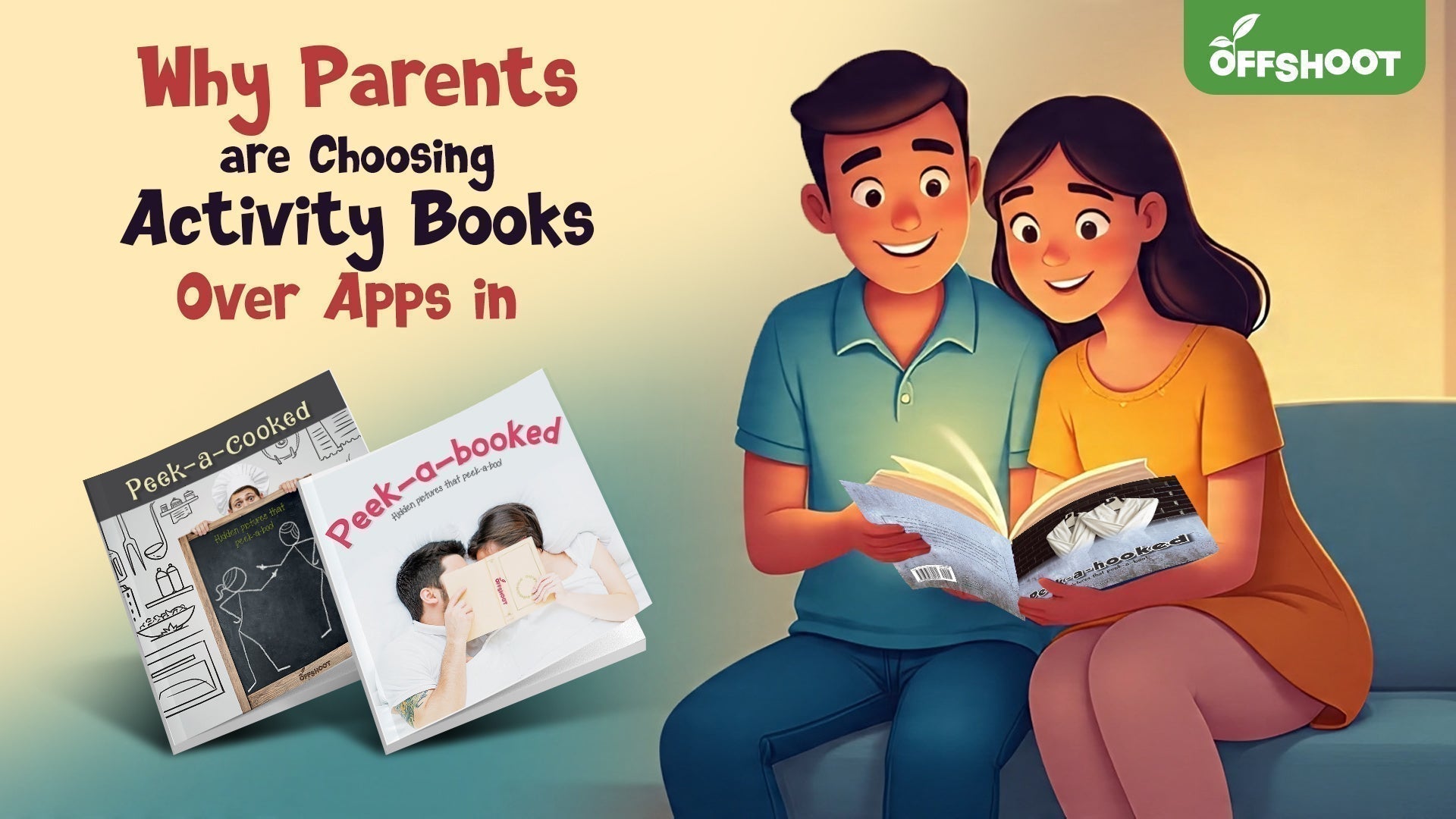
Why Parents are Choosing Activity Books Over Apps in 2025
| Offshoot Books
Why Parents are Choosing Activity Books Over Apps in 2025
In 2025, a quiet revolution is happening in homes and classrooms around the world. As screen-based learning tools continue to evolve, many parents are making a conscious choice to step back from the digital world and embrace a timeless classic: the activity book.
While educational apps have their place—offering interactive games and personalized learning paths—a growing body of research and real-world experience highlights the unique and profound benefits of screen-free learning. Parents today are not just looking for a way to keep their kids busy; they're prioritizing genuine, tangible development.
The Tangible Advantage: Developing Critical Skills Without Screens
Activity books for kids are more than just a diversion; they are a multi-sensory tool for healthy development. Unlike the passive swiping on a tablet, a physical book requires a child to actively engage with their environment.
- Fine Motor Skills and Hand-Eye Coordination: Activities like coloring, tracing, and mazes are fundamental to developing fine motor skills. Holding a crayon or pencil, controlling its movement, and staying within the lines are essential physical actions that build the dexterity needed for writing and other crucial life skills. Apps, while engaging, often fail to replicate this hands-on, muscle-building process.
- Enhanced Focus and Attention Span: The constant notifications, flashy animations, and fast-paced rewards of many apps can fragment a child’s attention. Activity books, by contrast, demand sustained focus. They teach children to sit with a task, work through challenges, and experience the satisfaction of completing a project from start to finish. This ability to concentrate is a cornerstone of future academic and professional success.
- Igniting Creativity and Imagination: When a child colors a page or solves a puzzle, they are the creator, not just a consumer. An app may provide a limited range of options, but a blank page or a dot-to-dot puzzle invites endless possibilities. This is where true creativity flourishes, as children are free to imagine, experiment, and express themselves without the confines of pre-programmed digital boundaries.
The Brain-Body Connection: Activity Books vs. Apps
Research shows that the brain develops best through direct, real-world interactions. The "video deficit effect" demonstrates that it takes longer for a child to learn an action from a screen than from a live, in-person demonstration. Similarly, while an app may teach a child to identify a letter on a screen, they may struggle to recognize it on a printed page or write it themselves.
This is because activity books bridge the gap between abstract concepts and physical reality. A child tracing the letter ‘A’ in an activity book is not just seeing it—they are feeling the motion, building muscle memory, and connecting the shape to the sound in a way that a screen cannot.
The Social and Emotional Payoff
Activity books also offer a vital opportunity for social connection and emotional growth that apps often cannot.
Parent-Child Bonding: A coloring session or a puzzle challenge can become a shared, screen-free activity that fosters communication and teamwork. This shared experience deepens the parent-child bond and creates lasting memories. In a world where families are increasingly "together-but-separate" with their individual devices, this dedicated time is priceless.
Building Independence and Confidence: As children successfully complete a maze, a puzzle, or a drawing, they gain a tangible sense of accomplishment. This independent problem-solving builds self-esteem and teaches them that they are capable of achieving goals on their own.
A Balanced Approach: Finding Harmony in a Digital World
This isn’t to say that all apps are bad or that technology has no role in a child's education. High-quality educational apps can be powerful supplemental tools when used mindfully. However, parents in 2025 are realizing that technology is best used as a complement, not a replacement, for hands-on, physical play.
By choosing activity books, parents are making a deliberate statement: that a child's development is about more than just a progress bar on a screen. It's about the feel of a page, the smell of a new book, the satisfaction of a completed drawing, and the shared laughter of a family activity. In a world that is always on, the simple, focused pleasure of an activity book is a much-needed and invaluable gift for a child's mind, body, and soul.

Leave a comment
Your email address will not be published.